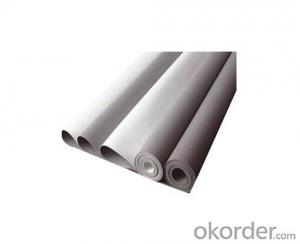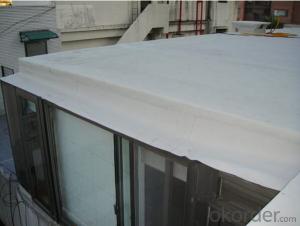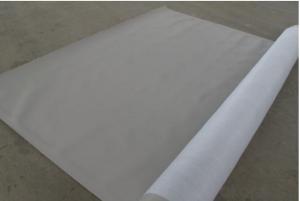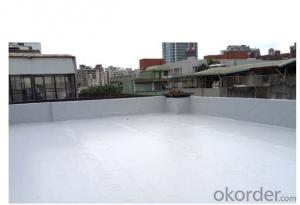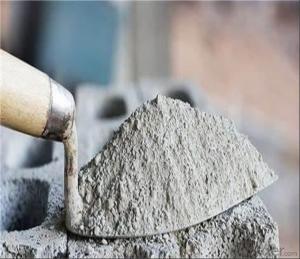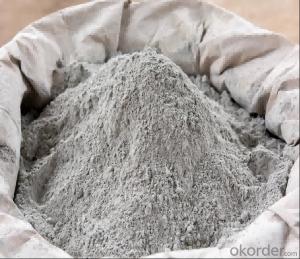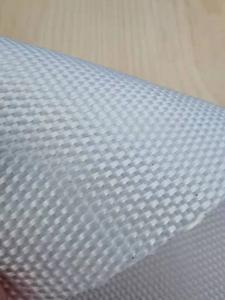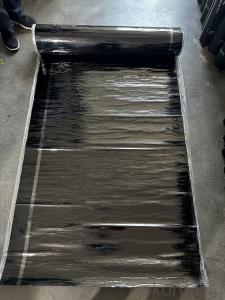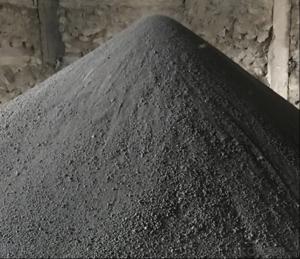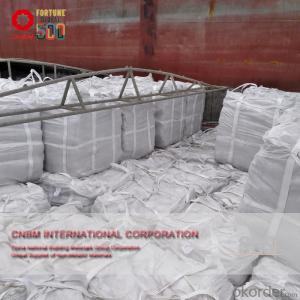PVC Roofing Waterproof Stretch Membrane with 1.2mm Width
- Loading Port:
- Qingdao
- Payment Terms:
- TT OR LC
- Min Order Qty:
- 2000 m²
- Supply Capability:
- 300000 m²/month
OKorder Service Pledge
OKorder Financial Service
You Might Also Like
Introduction of PVC Waterproof Membrane
Polyvinyl chloride the pvc waterproofing plastic membrane is a kind of excellent performance of polymer waterproof material,PVC resin as the main raw material,add all kinds of special additive and anti-aging composition,the use of advanced equipment and advanced technology extrusion rolling is made.The product has the tensile strength and elongation high shrinkage of small,low temperature soft good,long life and other advantages, the products wide 1.2m to 3.0m, the thickness of 0.8-2.0 mm(special specifications can be customized),stable performance,reliable quality,construction is convenient.
.
Features of PVC Waterproof Membrane
1)Excellent aging resistance. Service life of roofing material is over 20 years; service life of underground material is over 50 years.
2)Root resistant penetration, specially used on planting roofings.
3)Welding installation. Joints are solid and environment friendly, no pollution.
4)High tensile strength, good elongation and dimensional stability.
5)Good plasticity, easy and suitable for details installation.
6)Fireproof. Fire extinguished out of the ignition resource.
7)Surface is smooth, no fading and dirty resistant.
8)Width is over 2m. Construction wastage is small, more economical.
Classification and Specification of PVC Waterproof Membrane
N: Homogeneous PVC membrane
L: PVC membrane with fabric backing
W: Reinforced PVC membrane
Thickness: 1.2mm/1.5mm/2.0mm
Size: 2.05mx20m
Color: white/grey, or any other colors.
Advantage of PVC Waterproof Membrane
1.) Mixing automation. Apply automatic temperature control automatic time control and automatic feed control.
2.) Extrusion equipment uses twin screw coextrusion. Screw temperature uses computer automatic temperature control system.
3.) Handpiece uses large width didhead extrusion equipment.
4.) Sophisticated three-roller calender equipment. The space between equiment is controlled by automation system.
Application of PVC Waterproof Membrane
The products are widely used in all kinds of civil construction,subway,tunnel,water conservancy,landfill site,chemical industry,metallurgy and other areas of waterproof seepage control,corrosion engineering.
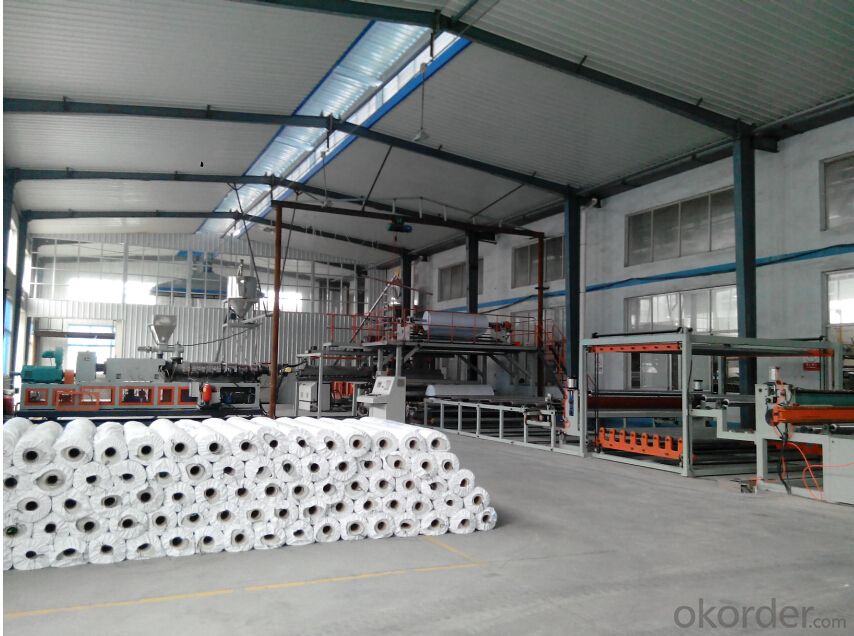
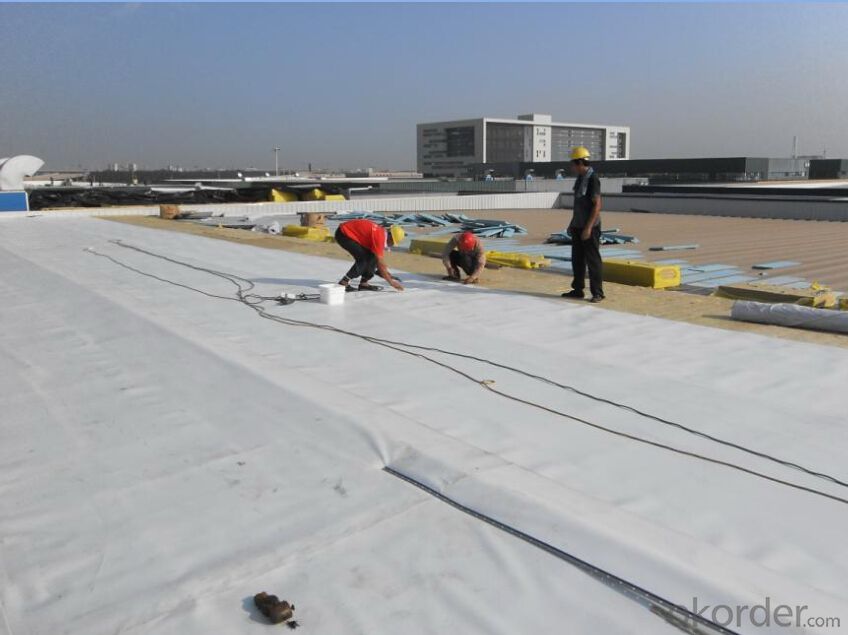
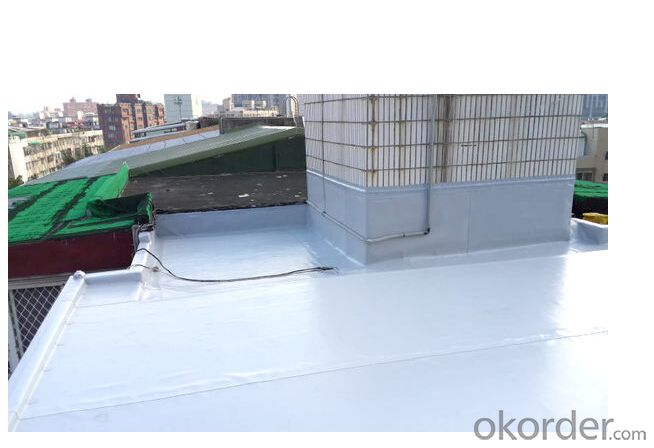
FAQ:
Can you produce 4m width?
Yes, no problem for us. We have four bases in China, largest one in this field.
How many quantity in one 20'' container for 1.2mm and 1.5mm?
480rolls, 11520m2 for 1.2mm and 400rolls, 9600m2 for 1.5mm
Can you provide free samples?
Yes, our samples are free, but express fees usually on buyer's account.
- Q:Can a waterproofing membrane be used for a hotel swimming pool area?
- Yes, a waterproofing membrane can be used for a hotel swimming pool area. The membrane will provide a barrier against water penetration, helping to keep the pool area dry and prevent any potential damage to the underlying structure.
- Q:Can a waterproofing membrane be used in new construction?
- A waterproofing membrane is capable of being utilized in new construction. In fact, it is frequently advised to incorporate a waterproofing membrane during the construction phase to furnish an extra layer of safeguard against water harm. Typically, waterproofing membranes are administered to the external foundation walls and basement floors to obstruct water infiltration and construct a barrier against moisture. This can effectively avert predicaments like leaks, mold, and structural damage in the long run. Furthermore, waterproofing membranes can also be employed in other areas of a new construction project, such as roofs, balconies, and bathrooms, to guarantee long-lasting waterproofing protection. On the whole, the utilization of a waterproofing membrane in new construction can contribute to the extension of the building's lifespan and instill peace of mind for its occupants.
- Q:Are waterproofing membranes suitable for exterior use?
- Yes, waterproofing membranes are suitable for exterior use. These membranes are specifically designed to provide a barrier against water penetration and are commonly used in various exterior applications such as rooftops, balconies, and foundations. They are made from durable materials that can withstand exposure to harsh weather conditions, UV rays, and temperature fluctuations. Waterproofing membranes help to prevent water damage, moisture buildup, and potential structural issues caused by water infiltration. Additionally, they can be applied to different types of surfaces including concrete, metal, and wood, making them versatile for various outdoor environments. Overall, waterproofing membranes are a reliable solution for protecting exterior surfaces from water damage and prolonging their lifespan.
- Q:Can a waterproofing membrane be used for vehicular traffic areas?
- Yes, a waterproofing membrane can be used for vehicular traffic areas. Waterproofing membranes are designed to protect surfaces from water damage by creating a barrier that prevents water from seeping through. In vehicular traffic areas, such as parking decks or driveways, it is important to protect the underlying structure from water infiltration, which can cause corrosion, deterioration, and expensive repairs. By using a waterproofing membrane specifically designed for vehicular traffic, the surface can be adequately protected from water damage, as well as other potential contaminants like oil and chemicals. These membranes are typically more durable and able to withstand the weight and impact of vehicles, ensuring long-lasting protection. Additionally, some waterproofing membranes offer slip-resistant properties, making them suitable for use in areas where vehicles may need traction. However, it is crucial to consult with a professional to determine the appropriate waterproofing membrane and installation method for specific vehicular traffic areas based on factors such as traffic volume, load capacity, and climate conditions.
- Q:Can waterproofing membranes be used for planter boxes?
- Planter boxes can indeed benefit from the use of waterproofing membranes. These membranes are specifically designed to keep water from entering surfaces and can be applied to a variety of materials like wood, concrete, and metal. When a waterproofing membrane is applied to the inside of a planter box, it acts as a shield, safeguarding the material against water damage and extending the planter box's lifespan. This is especially advantageous for wooden planter boxes because it prevents the wood from decaying or deteriorating over time. Moreover, the waterproofing membrane also aids in retaining moisture within the planter box, preventing water leakage and ensuring that plants receive an adequate water supply for healthy growth. Ultimately, the use of waterproofing membranes for planter boxes enhances their durability and performance, making them a popular choice for both indoor and outdoor gardening.
- Q:Are waterproofing membranes effective against mold and mildew?
- Yes, waterproofing membranes are effective against mold and mildew. These membranes provide a barrier that prevents water from infiltrating into the building's structure, thereby reducing the moisture content. Since mold and mildew thrive in damp and humid environments, a waterproofing membrane helps to create a dry and inhospitable environment for their growth. By sealing off the surface, waterproofing membranes prevent water intrusion and the subsequent moisture buildup that promotes mold and mildew formation. Additionally, some waterproofing membranes are specifically designed with anti-microbial properties to further inhibit the growth of mold and mildew. However, it is important to note that while waterproofing membranes can significantly reduce the risk of mold and mildew, proper ventilation and maintenance of the building are also necessary to ensure long-term prevention.
- Q:Can a waterproofing membrane be used for swimming pools and water features?
- Swimming pools and water features can benefit from the utilization of a waterproofing membrane. These specialized membranes serve the purpose of creating a barrier that effectively prevents water from permeating surfaces. They have proven to be highly valuable in a variety of applications, such as swimming pools and water features, where their primary objective is to confine water within the designated area. These membranes are typically crafted from materials that possess water-resistant properties, enabling them to withstand continuous exposure to moisture without incurring damage. Furthermore, their flexibility allows for convenient installation and adaptation to fit pools and water features of varying shapes and sizes. In summary, the implementation of a waterproofing membrane is an efficient and dependable method of guaranteeing the durability and longevity of swimming pools and water features.
- Q:Can a waterproofing membrane be used in stadiums or sports complexes?
- Stadiums and sports complexes can indeed benefit from the use of waterproofing membranes. It is highly advisable to employ waterproofing solutions in these types of structures to safeguard them against water damage and leaks. The purpose of a waterproofing membrane is to serve as a barrier, preventing water from infiltrating the concrete or other construction materials employed in the stadium or sports complex. This is especially crucial in regions where heavy rainfall or high humidity levels are prevalent. Implementation of a waterproofing membrane on the roofs, walls, and foundations of these edifices helps guarantee their longevity and structural integrity, while also offering a comfortable and secure environment for athletes and spectators alike. Waterproofing membranes are specifically designed to endure the pressures and movements associated with the building, making them an optimal choice for stadiums and sports complexes. Additionally, contemporary waterproofing membranes come in diverse forms, including liquid-applied or sheet membranes. This allows for flexibility in application and compatibility with various construction materials.
- Q:Can a waterproofing membrane be used in areas with chemical exposure, such as industrial settings?
- In industrial settings, a waterproofing membrane can indeed be utilized even in areas where chemical exposure is a concern. However, it is vital to carefully consider the compatibility of the chosen waterproofing membrane with the chemicals that are present. Different membranes possess varying degrees of resistance to different chemicals, hence the utmost importance of selecting a membrane that can endure the specific chemical exposure in the industrial setting. Furthermore, ensuring the proper installation and maintenance of the waterproofing membrane is crucial in order to guarantee its effectiveness and longevity in such environments. Regular inspections must be carried out, and any damage caused by chemical exposure should be promptly addressed through repairs or replacements. Ultimately, by making the right choice and consistently maintaining it, a waterproofing membrane can serve as an effective barrier against water and chemicals in industrial settings.
- Q:Can a waterproofing membrane be used for swimming pool coping?
- Using different grammar and expressions: Using a waterproofing membrane for swimming pool coping is not possible. Coping is the term used for the material that covers the upper edges of the pool walls, usually made of concrete, stone, or tile. Its main purposes are to provide a polished appearance and shield the pool structure from water damage. Conversely, a waterproofing membrane is a substance applied to a structure's surface, such as a basement or roof, to prevent water infiltration. Although both serve the same purpose of water protection, they are specifically designed for distinct applications and cannot be interchanged.
1. Manufacturer Overview |
|
|---|---|
| Location | |
| Year Established | |
| Annual Output Value | |
| Main Markets | |
| Company Certifications | |
2. Manufacturer Certificates |
|
|---|---|
| a) Certification Name | |
| Range | |
| Reference | |
| Validity Period | |
3. Manufacturer Capability |
|
|---|---|
| a)Trade Capacity | |
| Nearest Port | |
| Export Percentage | |
| No.of Employees in Trade Department | |
| Language Spoken: | |
| b)Factory Information | |
| Factory Size: | |
| No. of Production Lines | |
| Contract Manufacturing | |
| Product Price Range | |
Send your message to us
PVC Roofing Waterproof Stretch Membrane with 1.2mm Width
- Loading Port:
- Qingdao
- Payment Terms:
- TT OR LC
- Min Order Qty:
- 2000 m²
- Supply Capability:
- 300000 m²/month
OKorder Service Pledge
OKorder Financial Service
Similar products
New products
Hot products
Related keywords
